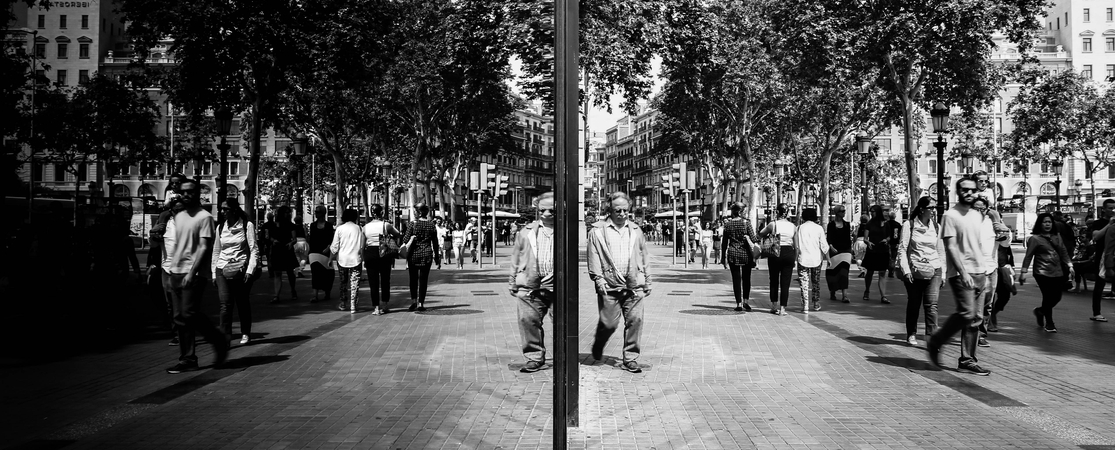The manifesto was the method - now Labour's objective will be to change the soul
From a distance, La Borda, in west Barcelona, looks like a building site: a multi-story skeleton of scaffolding and concrete, polyester netting and precarious ladders. But a casual glance misses the people involved in its construction. On a Saturday morning, the building’s future inhabitants gather in hard hats, hauling wooden blocks across the ground to be sanded and smoothed. Inside, the structure is beginning to take shape.
“For us, selling off social housing was the original sin”, Elba Mansillo, a future resident of La Borda says. “We’re a group of neighbours who were shut out of Spain’s housing market, so we decided to get organised around this basic need”, she explains of the self-built project.
La Borda follows a blueprint for what Henri Lefebvre, the staple theorist of spatial politics, called “autogestion” – where social groups refuse to passively accept their living conditions, and enact the changes that our present economic system has worked hard to prevent. The Catalan word for this – autogestió – appears on walls and pamphlets across the city.
Since taking power in 2015, the municipal government Barcelona en Comú has tried to build upon this democratic energy. Where the socialist institutions of the UK’s post-war consensus tended towards paternalism and centralisation, municipal platforms like BComú have encouraged direct involvement, making politics into something people do – rather than something that is done to them.
In the UK, successive politicians have impressed their own visions of the model citizen upon the British consciousness. Margaret Thatcher’s ideal of the car-owning executive transformed into “mondeo man” under Tony Blair. David Miliband extolled “hard-working families” and David Cameron rolled out his boot-strapping “big society” as a figleaf for austerity, hugging “hoodies” while condemning benefits “scroungers”.
These phrases are more than just marketing spiel. They structure the horizons of possibility, valorising some behaviours while penalising others. The point is that populations have never been governed through policies alone. The state extends its power by shaping what becomes acceptable. Its presence is felt even when it is absent, through the social expectations that influence individual conduct and construct willing consent.
More than any other recent politician, Margaret Thatcher understood the power of governing consciousness. As she once said, “economics are the method: the object is to change the soul”. The effects of economic policy go beyond the material. It is notable that both Thatcher and Francisco Franco opted to destroy social housing stock. Both knew how this could yield voters wedded to private property rights, aligning the interests of a disaffected working class with a conservative elite. Much like Thatcher’s call for a property-owning democracy, José Luis Arrese, the Spanish minister of housing, said in 1957 that Spain desired a country of property owners, not a country of workers. By destroying social housing, Franco and Thatcher moulded a generation of conservative subjects and restructured the realm of what was thought politically possible.
Does the left have an alternative to this governance of consciousness? What forms of citizenship and participation should a Labour government encourage? Academics like Stathis Gourgouris and Carys Hughes suggest that such an alternative could amount to a “left governmentality” – a power that uses techniques of governance to encourage particular behaviours and ways of understanding ourselves.
As with Spain, successive governments in the UK have celebrated forms of citizenship that give primacy to private property rights and individualism. To break with this past, a future Labour government will need its own version of governmentality. Key to this will be encouraging the contestation of power and a shift from political acquiescence to activity. But a left governmentality could also foster creativity and collaboration, forms of knowledge with a purview beyond the market, an awareness of others and the world we inhabit, and perhaps most importantly of all, empathy.
We must also remember that not everyone wants to build their own home. La Borda’s light-filled central courtyard and shared spaces offer a glimmer of optimism in a dysfunctional housing market, showing that an alternative is possible – for those with a proclivity for social activism and enough free time. Socialism will encounter problems if it expects all citizens to be actively engaged in resisting hegemony or sharing communal kitchens.
In this light, BComú’s experiments in radical citizenship are interesting. Through citizens assemblies and participatory processes, it has encouraged people to break out of isolation. Cities possess a special kind of power that can embolden solidarity. Where individuals find themselves part of a larger whole, spontaneous encounters, collective solidarities and empathy can emerge. As Kate Shea Baird of BComú’s executive committee described when speaking at The World Transformed, people who disagree over Catalan nationalism can find themselves united over water supplies and public space. The city defines its membership on the basis of residency, not nationalist or ideological allegiances.
The design and governance of the spaces we occupy is fundamental to the behaviours and aspirations that are thought valid. New Labour chose to criminalise those who didn’t fit its citizenship ideal, handing out ASBOs to urban loiterers in corporately-owned business improvement districts. Under the Conservative administration, the erosion of public space has magnified this logic of urban discipline, leaving few places in which homeless people can legally exist. By sharing spaces on public transport, pavements, in parks and squares, we come face to face with others, and are confronted by their realities.
These ideas are not intended to be definitive, but a starting point for a discussion about the forms of governance beyond the realpolitik of policy, and the ethics, behaviours, and ways of understanding ourselves that a future Labour government could embrace.
